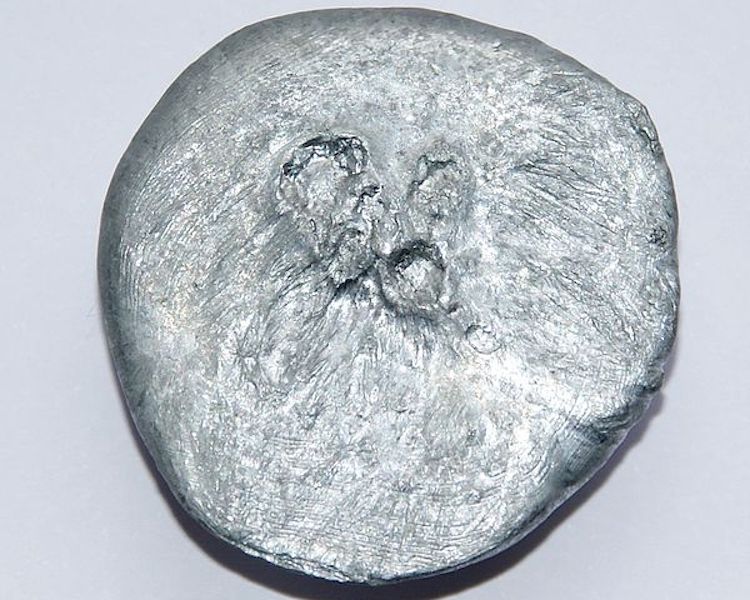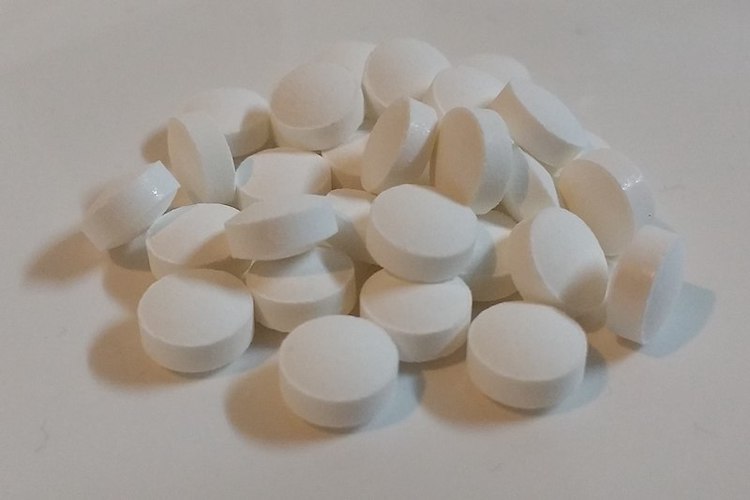The Benefits Of Zinc + Dosage Recommendations
Most people think of zinc as a supplement that’s necessary in order to avoid, or shorten, common colds, so it gets a lot more attention during the winter than the rest of the year. However, zinc is actually required in small daily doses in order for the body to function properly. It has many benefits that aren’t as well known, but are just as important, as boosting the immune system…

What Is Zinc?
Actually a type of metal, zinc is a trace element found in all of the body’s tissues. It’s essential for proper cell division. Like other trace minerals and elements, it has antioxidant properties and fights free radicals to help slow aging. It also affects hormone levels and numerous other biochemical activities.

The Benefits Of Zinc
Increased Immune Function
Probably its most well known effect, zinc is often taken to boost immunity to help fight and avoid the common cold. Studies show zinc supplementation can have anti-viral effects by interfering with the molecular processes that cause mucus and bacteria to accumulate in the nasal passages and sinuses.
Support Of Liver Function
Zinc is shown to decrease free radical damage, aid in nutrient absorption and proper waste elimination, and reduce liver tissue inflammation. This can help reduce the risk of infection caused by liver damage.
May Help Fight Cancer
Since it’s a powerful antioxidant and anti-inflammatory, zinc helps combat oxidative stress and may aid as a natural cancer treatment. Because of its key role in supporting healthy cell division, some studies show promising results with fighting cancerous cell mutations and tumor growth.
Improved Muscle Repair And Growth
Again, because it’s key in promoting proper cell division and growth, zinc can benefit muscle growth and repair. It aids in the release of testosterone, insulin-like growth factor-1 (IGF-1), and growth hormones to help maintain healthy metabolism and aid in building muscle mass.
Hormone Balancing
Zinc plays a role in the production of several hormones whose balance is essential for health. It’s needed to produce progesterone and estrogen in women and testosterone in both women and men. It’s also involved in the creation of eggs in the ovaries and their release during ovulation. Thus it impacts the health of the male and female reproductive systems.
Increased Fertility
Studies show that zinc can modulate serum testosterone levels in men. Levels that are too low in young males can lower libido and impact fertility negatively. Low levels of zinc in women can negatively affect the ability of eggs to mature properly, and lead to issues with ovulation.
Help With Nutrient Absorption
Zinc is required in order to help the body utilize the amino acids that it derives from food. It’s also key in helping break down carbohydrates to use for fuel. Because of its effects on nutrient absorption, zinc has also been shown to help combat diarrhea.
Improved Blood Vessel And Heart Health
Since it has a positive effect on cell division and is a powerful antioxidant, it stands to reason that proper levels of zinc may help maintain and promote cardiovascular cell structures, while also decreasing damage from oxidative stress and inflammation. It’s also been shown to promote healthy blood circulation and act as a natural remedy for high blood pressure.
Combats Diabetes
Because of its role in hormone balancing, zinc can also affect insulin regulation, which influences blood sugar and its effect on the symptoms of diabetes. Zinc is shown to bind to insulin so that it’s adequately stored in the pancreas and released when glucose is found in the blood.
Zinc Dosage Recommendations
Recommended daily intakes are age and gender based:
Infants:
- 0–6 months: 2 milligrams/day
- 7–12 months: 3 milligrams/day
Children:
- 1–3 years: 3 milligrams/day
- 4–8 years: 5 milligrams/day
- 9 –13 years: 8 milligrams/day
Adolescents and Adults:
- Males age 14 and over: 11 milligrams/day
- Females age 14 to 18 years: 9 milligrams/day
- Females age 19 and over: 8 milligrams/day

Sources Of Zinc
Food
Zinc is usually found in highest concentrations in high-protein foods, with absorption being optimal from animal-based proteins as opposed to plant-based proteins.
The following percentages are based on the RDI for the average adult woman of 8 mg/day:
- Chicken – 3 ounces: 1 mg (12.5% DV)
- Grass-fed Beef – 3 ounces: 2.6 mg (32% DV)
- Salmon – 3 ounces: 0.5 mg (6% DV)
- Turkey – 3 ounces: 1 mg (12.5% DV)
- Lamb – 3 ounces: 2.9 mg (35% DV)
- Yogurt (or Kefir) – 1 container of plain yogurt/6 ounces: 1 mg (12.5% DV)
- Cashews – ¼ cup: 1.9 mg (23% DV)
- Pumpkin seeds – ¼ cup: 1.6 mg (20% DV)
- Eggs – 1 large: 0.6 mg (7% DV)
- Mushrooms – 1 cup: 0.6 mg (7% DV)
- Chickpeas – 1 cup cooked: 2.5 mg (31% DV)
- Cocoa powder – 1 tablespoon: 0.3 mg (3% DV)

Zinc Supplements
While it’s always best to obtain zinc through whole food sources, zinc comes in several supplement forms. Orally taken supplements come in tablet and capsule forms, but they’re also available as lozenges, gels, and syrups, and also in most multi-vitamin supplements. The tolerable upper limit for zinc is 40 mg/day.

Zinc Deficiency
Zinc deficiencies are quite common worldwide, occurring when intakes are too low or absorption is hindered due to digestive disorders. Since zinc concentrations are highest in animal-based proteins, vegetarians and vegans are particularly susceptible to deficiencies. Also, people who struggle with digestive issues, such as over-production of stomach acid, leaky gut syndrome, and alcoholism are at risk for experiencing a deficiency of zinc.
Things that can interfere with zinc’s effects on hormone levels, such as birth control pills and hormone replacement therapy drugs, are also believed to increase the risk of a zinc deficiency.
Common symptoms of zinc deficiency include:
- Changes in appetite, including food cravings for salty or sweet foods
- Digestive problems, including diarrhea
- Weight gain or loss
- Infertility
- Low immunity
- Chronic fatigue syndrome
- Poor concentration and memory
- Changes in ability to taste and smell
- Hair loss
- Nerve dysfunction
- Slowed ability to heal wounds, skin infections or irritation
- Hormonal problems, including worsened PMS or menopause symptoms

Zinc Side-Effects, Risks, And Interactions
Getting too much zinc for a prolonged amount of time is known to disrupt the absorption of other minerals, including copper. This is important in liver disease that causes the liver to retain too much copper, causing more damage. This is a rare and severe occurrence, however.
Usually short-term and minor symptoms occur with doses that are too high. These include negative changes in the ability to taste and smell foods, abdominal cramping and diarrhea, indigestion, nausea and vomiting. These usually occur within 3 to 10 hours of taking supplements, but resolve relatively quickly once supplementation is discontinued. Zinc supplements may interact negatively with other medications, including diuretics and antibiotics.
TL;DR Summary
- Zinc is an essential trace element required in small daily amounts in order to maintain health.
- Benefits include promoting cell and tissue growth and repair, regulating hormone production, and fighting inflammation and free radical damage.
- Eating protein rich foods, especially animal-based proteins, is the best way to obtain zinc and avoid deficiency.
- Deficiency signs include chronic fatigue, lowered immunity, changes in appetite, hair loss, weight gain and loss, hormonal disruption, and slowed wound healing.
